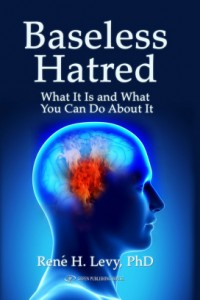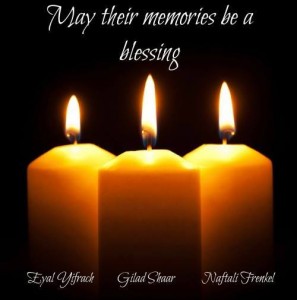I grew up watching Mork. I’ve seen Aladdin. I even, during college, watched him perform live. But I never knew Robin Williams.
He was the consummate entertainer. He just knew how to make us laugh. His improvisation, his off-the-cuff remarks, were brilliantly funny. But we never understood who he really was.
And that was, perhaps, the problem, that which made him so depressed as to bring him to a tragic end.
With his passing, journalists and commentators are talking about mental illness and depression, recognizing the challenges he faced. [UPDATE: And let me make it clear that I am not commenting about most cases, or even necessarily his case, of mental illness or depression. A person with either must seek professional treatment and it is a Mitzvah to do so.]
But I don’t believe that Williams simply had a mental illness. Few are discussing how common depression seems to be among the leading entertainers — or why this is so. While I could of course be wrong in this one case, it is hard to imagine that so many entertainers, upon finding success, coincidentally develop depression.
Someone challenged me, asking whether it is true that so many entertainers are depressed, so I did a little research. I looked up Rolling Stone’s list of the top 500 albums, and found that nine of the top ten artists (those with the most albums on the list) had a drug problem (Bruce Springsteen being the exception). So did all five of IMDb’s top five actors (that’s where I stopped looking, though #6, Dustin Hoffman, did as well). Sports figures, of course, must stay in shape, but even there you find one drug scandal after the next. And what are drugs? Escape from the plain, real, often-depressing world.
[UPDATE: Someone sent me the link to comedian Jim Horton’s article about Williams. In it he writes: “So many comics I know seem to struggle with the demons of self-hatred and self-destruction… In the 25 years I’ve been doing stand-up, I’ve personally known at least eight comedians who committed suicide.”]
I’m not aware of any other industry whose top practitioners are so likely to have trouble with drugs, alcohol, broken marriages, other self-destructive behaviors, and of course suicide… as entertainment. Not politicians, not the military, not any other profession or (legal) blue-collar field. In order to find a similar level of prevalence, one must look at drug dealers or prostitutes.
Isn’t something wrong with this picture? The entertainment industry is supposed to be about making us happy; entertainers are sharing happiness with us. Yet behind the scenes, they seem to need to escape. Either temporarily by getting drunk or high, or all too often permanently, whether via overdose or deliberate action.
The answer, I believe, is that what I said above is not really true. Entertainers are not sharing happiness, they are acting. Comedians practice their art and make people laugh… and then go home, where life isn’t funny. They aren’t creating something real, or (usually) making a lasting difference in someone’s life, so the feelings of accomplishment are similarly transient. Thus the need to escape.
True happiness is not found via entertainment. Happiness is tied to attainment, to achievement, especially to attaining completion as a person. The Vilna Gaon says on Megillas Esther (8:16) that in this world, Simcha, happiness, precedes Sasson, joy. “Happiness is moving forward to reach an objective in happiness, and joy is afterwards, when one has already achieved the objective and feels joy in his heart.”
Happiness is not a casual thing, it doesn’t just happen, it is something that one can pursue and develop. This is why Chazal say “it is a great Mitzvah to always be happy” — it’s something we can cultivate.
This statement also teaches us that happiness is not a state of laughing delight. Rav Alexander Mandelbaum, in his “V’hayisa Ach Samayach” (“and you shall only be happy”), speaks about two types of happiness considered by Chazal — happiness with one’s lot, and happiness in performance of Mitzvos. Happiness with one’s lot is developed by considering that G-d gives each individual precisely what that person needs — so he or she, even in a difficult situation, should be happy with the understanding that HaShem saw that the difficult situation would prove to be of ultimate benefit. That sort of happiness doesn’t “just happen.”
One does not always feel Sasson, joy. But it is a Mitzvah to always be happy — even on Tisha B’Av, even during Shivah. How can this be? We can comprehend this by understanding Simchah as a feeling of moving happily in the right direction, pursuing a goal. That is something that can remain with a person even during times of grief and pain.
That is real happiness. Unfortunately, the purveyors of what the modern world calls “happiness” — the entertainers — realize within themselves, either consciously or subconsciously, that they have not found and are not providing true happiness.
What makes this especially sad is that now that he is gone, the stories are emerging of Robin Williams, the humanitarian, who visited hospitals on Dec. 25 to give presents to all the children. When he met the doctors and nurses who had spent their holiday stabilizing a premature baby, he teared up — recognizing people whose efforts were real and transformative. Perhaps he didn’t realize that yes, you can make others happy, you can give people something lasting, just with a smile — and even a joke or two, which Robin Williams had in abundance.
Yes, it’s sad that he went, and it’s sad that he was so sad — he could have been so happy.
 Have you ever had something bad happen, and said a quick (or not so quick) prayer?
Have you ever had something bad happen, and said a quick (or not so quick) prayer?


 Many words have been written, and many more will be, about this awful event. But of all the things that were said, a brief comment to Twitter by Rabbi Steven Burg, Head of the Eastern Division of the Wiesenthal Center, summed it up best: “The world does not understand that this is not political for Jews. This was deeply personal. We all loved #EyalGiladNaftali.”
Many words have been written, and many more will be, about this awful event. But of all the things that were said, a brief comment to Twitter by Rabbi Steven Burg, Head of the Eastern Division of the Wiesenthal Center, summed it up best: “The world does not understand that this is not political for Jews. This was deeply personal. We all loved #EyalGiladNaftali.”